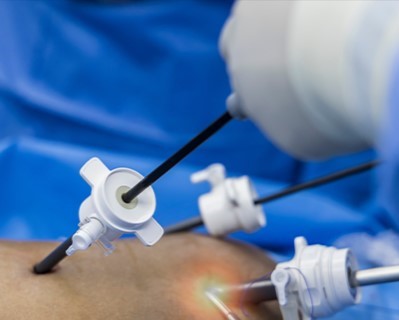Laparoscopic Surgery
- Purpose: Minimally invasive surgery to diagnose and treat various abdominal and pelvic conditions.
- Procedure: Small incisions are made, and a laparoscope is used to visualize and perform surgery.
-
Note: The information provided here applies to routine Laparoscopic Surgery procedures under standard conditions. However, specifics may vary depending on individual patient factors, such as the type of surgery being performed, patient tolerance, or any complications that might arise during or after the procedure. The patient’s overall health and the complexity of the surgery can also influence the recovery process.
Inpatient/Outpatient
Laparoscopic surgery is often performed as an outpatient procedure, meaning most patients can return home the same day. However, depending on the complexity of the surgery and the patient’s overall health, an overnight stay may be required for observation.Hospital Stay Duration
For most laparoscopic surgeries, patients do not require an overnight hospital stay and can be discharged within a few hours after the procedure. If the surgery is more complex, or if complications arise, a short hospital stay of 1 to 2 days may be necessary.Type of Anesthesia
Laparoscopic surgery is typically performed under general anesthesia, meaning the patient will be fully unconscious during the procedure. In some cases, local anesthesia with sedation may be used, depending on the type of surgery and the patient’s needs.Travel After Procedure
Patients are generally able to travel shortly after the procedure, though it is advisable to rest for the remainder of the day. Long-distance travel should be avoided for at least 1 to 2 weeks, especially if the surgery was more complex, to allow time for initial recovery and monitoring for potential complications.Pre-procedure Preparation
Preparation for laparoscopic surgery involves following specific guidelines provided by the healthcare provider. Patients may be advised to fast before surgery, avoid certain medications, and undergo pre-operative tests such as blood work or imaging studies. Patients should also inform their surgical team of any existing medical conditions or medications they are taking.Procedure Duration
The duration of laparoscopic surgery varies depending on the type of surgery being performed. Most procedures take between 30 minutes to 2 hours. During the surgery, small incisions are made, and a camera (laparoscope) and specialized instruments are inserted to perform the procedure. This minimally invasive approach usually results in less pain and quicker recovery compared to open surgery.Recovery Time
Recovery from laparoscopic surgery is generally quicker than from open surgery. Most patients can resume light activities within a few days and return to normal activities within 1 to 2 weeks. However, recovery time can vary depending on the type of surgery performed and the patient’s overall health. Patients should avoid heavy lifting and strenuous activities for several weeks and follow their healthcare provider’s instructions for wound care and activity restrictions.Estimated Cost
The cost of laparoscopic surgery can vary depending on the type of surgery, the surgeon's expertise, and geographic location. For accurate cost information, patients should contact their healthcare provider or surgical center directly.Post-procedure Care
Post-procedure care for laparoscopic surgery involves managing pain, preventing infection, and ensuring proper healing. Patients may be prescribed pain relievers and may be advised to avoid certain activities that could strain the surgical site. Follow-up appointments are typically scheduled to monitor recovery and remove any sutures if necessary. It is important to report any signs of complications, such as fever, severe pain, or unusual discharge from the incision sites, promptly.

